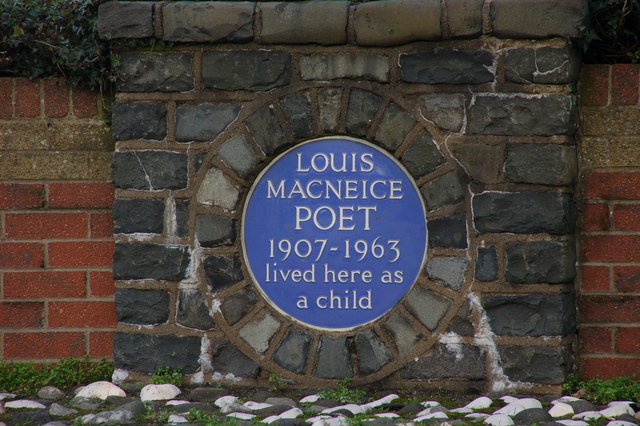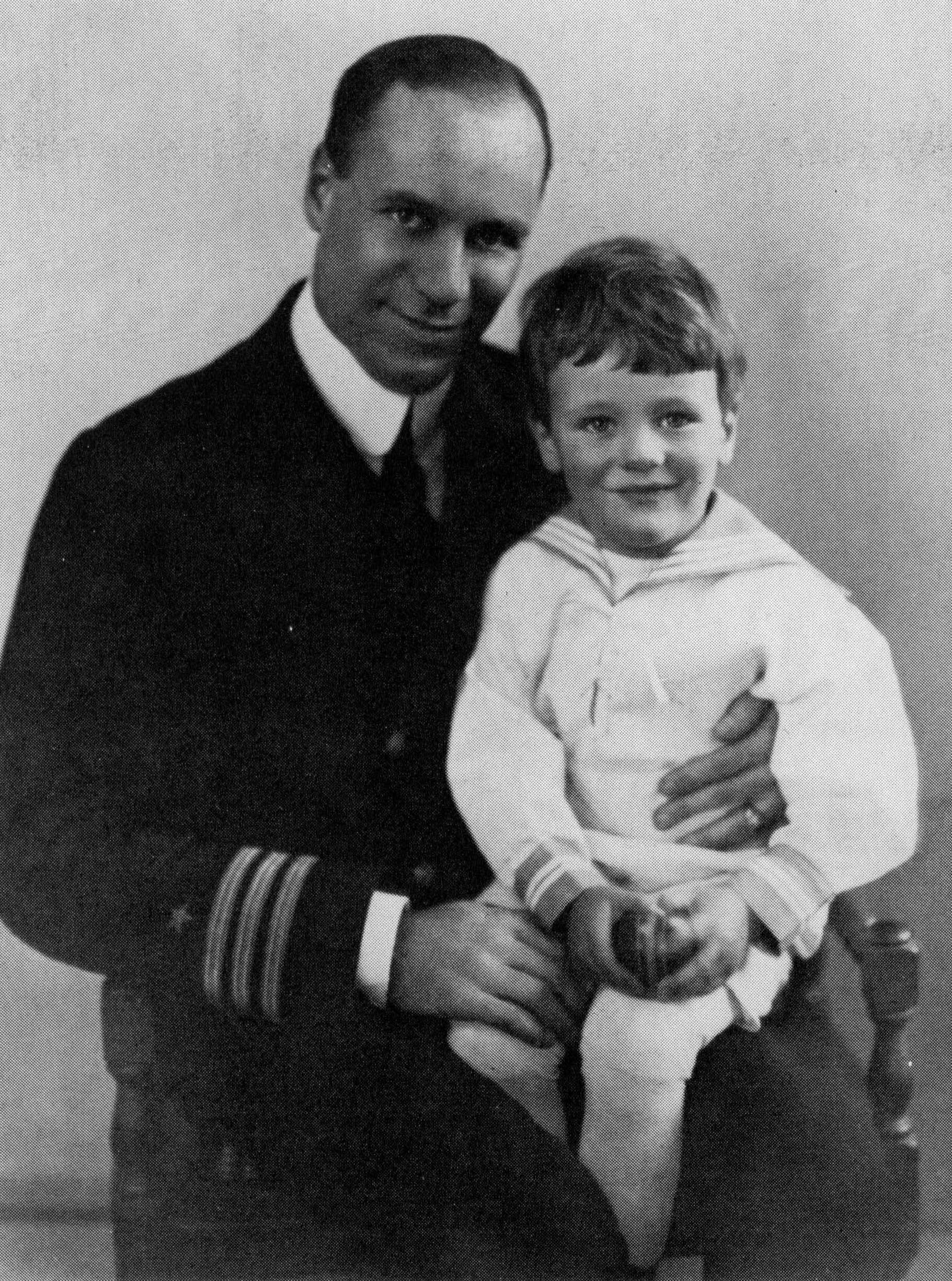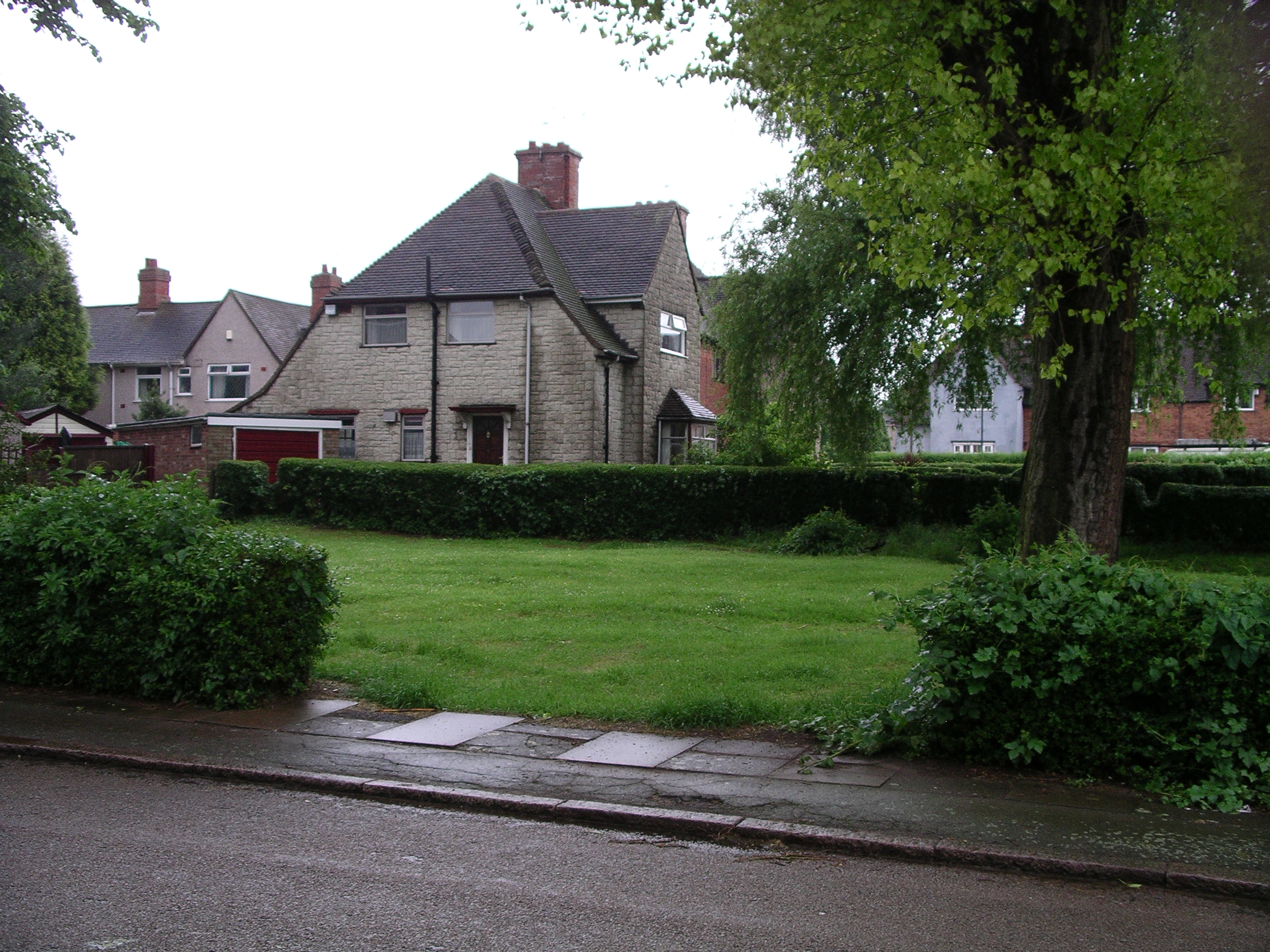|
Faber Book Of Modern Verse
The ''Faber Book of Modern Verse'' was a poetry anthology, edited in its first edition by Michael Roberts, and published in 1936 by Faber and Faber. There was a second edition (1951) edited by Anne Ridler, and a third edition (1965) edited by Donald Hall. The selection was of poems in English printed after 1910, which meant that work by Gerard Manley Hopkins could be included. A later edition was edited by Peter Porter. Poets in the ''Faber Book of Modern Verse'' (1965) Some of the poets in the 1936 edition were not included in the 1965 edition, which also had the addition of a substantial supplement: Conrad Aiken - W. H. Auden - George Barker - John Berryman - Robert Bly - Hart Crane - E. E. Cummings - Donald Davie - James Dickey - H. D. - Keith Douglas - Richard Eberhart - T. S. Eliot - William Empson - David Gascoyne - W. S. Graham - Robert Graves - Thom Gunn - John Heath-Stubbs - Geoffrey Hill - Gerard Manley Hopkins - Ted Hughes - T. E. Hulme - David Jones - Phil ... [...More Info...] [...Related Items...] OR: [Wikipedia] [Google] [Baidu] |
Poetry Anthology
In book publishing, an anthology is a collection of literary works chosen by the compiler; it may be a collection of plays, poems, short stories, songs or excerpts by different authors. In genre fiction, the term ''anthology'' typically categorizes collections of shorter works, such as short stories and short novels, by different authors, each featuring unrelated casts of characters and settings, and usually collected into a single volume for publication. Alternatively, it can also be a collection of selected writings (short stories, poems etc.) by one author. Complete collections of works are often called "complete works" or "" (Latin equivalent). Etymology The word entered the English language in the 17th century, from the Greek word, ἀνθολογία (''anthologic'', literally "a collection of blossoms", from , ''ánthos'', flower), a reference to one of the earliest known anthologies, the ''Garland'' (, ''stéphanos''), the introduction to which compares each of its ... [...More Info...] [...Related Items...] OR: [Wikipedia] [Google] [Baidu] |
David Gascoyne
David Gascoyne (10 October 1916 – 25 November 2001) was an English poet associated with the Surrealist movement, in particular the British Surrealist Group. Additionally he translated work by French surrealist poets. Early life and surrealism Gascoyne was born in Harrow the eldest of three sons of Leslie Noel Gascoyne (1886–1969), a bank clerk, and his wife, Winifred Isobel, née Emery (1890–1972). His mother, a niece of the actors Cyril Maude and Winifred Emery, was one of two young women present when the dramatist W. S. Gilbert died in his lake at Grim's Dyke in May 1911. Gascoyne grew up in England and Scotland, attending Salisbury Cathedral School and London's Regent Street Polytechnic. He spent some of the early 1930s in Paris. Gascoyne's first book, ''Roman Balcony and Other Poems'', appeared in 1932, when he was 16. Reputation In a poetic field dominated by W. H. Auden and other more political and social poets, the surrealist group tended to be overlooked by c ... [...More Info...] [...Related Items...] OR: [Wikipedia] [Google] [Baidu] |
Charles Madge
Charles Henry Madge (10 October 1912 – 17 January 1996) was an English poet, journalist and sociologist, now most remembered as a founder of Mass-Observation.Philip Bounds, ''Orwell and Marxism: the political and cultural thinking of George Orwell''. London: I.B. Tauris, 2009. (p. 204) Life Charles Henry Madge was born in Johannesburg, South Africa, son of Lieut-Col. Charles Madge (1874-1916) and Barbara Hylton-Foster (1882-1967). He was educated at Winchester College and studied at Magdalene College, Cambridge. He was a literary figure from his early twenties, becoming a friend of David Gascoyne; like Gascoyne he was generally classed as a surrealist poet. Madge's essay "Surrealism for the English" (''New Verse'' magazine, December 1933) argued that potential English surrealist poets would need both a knowledge of "the philosophical position of the French surrealists" and "a knowledge of their own language and literature". Madge contributed the essay "Pens Dipped In Poison" ... [...More Info...] [...Related Items...] OR: [Wikipedia] [Google] [Baidu] |
Louis MacNeice
Frederick Louis MacNeice (12 September 1907 – 3 September 1963) was an Irish poet and playwright, and a member of the Auden Group, which also included W. H. Auden, Stephen Spender and Cecil Day-Lewis. MacNeice's body of work was widely appreciated by the public during his lifetime, due in part to his relaxed but socially and emotionally aware style. Never as overtly or simplistically political as some of his contemporaries, he expressed a humane opposition to totalitarianism as well as an acute awareness of his roots. Life Ireland, 1907–1917 Louis MacNeice (known as Freddie until his teens, when he adopted his middle name) was born in Belfast, the youngest son of Rev. John Frederick and Elizabeth Margaret ("Lily") MacNeice.Poetry Foundation profile Both were originally from the West of Ireland. MacNeice's fa ... [...More Info...] [...Related Items...] OR: [Wikipedia] [Google] [Baidu] |
Hugh MacDiarmid
Christopher Murray Grieve (11 August 1892 – 9 September 1978), best known by his pen name Hugh MacDiarmid (), was a Scottish poet, journalist, essayist and political figure. He is considered one of the principal forces behind the Scottish Renaissance and has had a lasting impact on Scottish culture and politics. He was a founding member of the National Party of Scotland in 1928 but left in 1933 due to his Marxist–Leninist views. He joined the Communist Party the following year only to be expelled in 1938 for his nationalist sympathies. He would subsequently stand as a parliamentary candidate for both the Scottish National Party (1945) and British Communist Party (1964). Grieve's earliest work, including ''Annals of the Five Senses'', was written in English, but he is best known for his use of "synthetic Scots", a literary version of the Scots language that he himself developed. From the early 1930s onwards MacDiarmid made greater use of English, sometimes a "synthetic English ... [...More Info...] [...Related Items...] OR: [Wikipedia] [Google] [Baidu] |
Norman MacCaig
Norman Alexander MacCaig DLitt (14 November 1910 – 23 January 1996) was a Scottish poet and teacher. His poetry, in modern English, is known for its humour, simplicity of language and great popularity. Life Norman Alexander MacCaig was born at 15 East London Street, Edinburgh, to Robert McCaig (1880–1950?), a chemist from Dumfriesshire, and Joan née MacLeod (1879–1959), from Scalpay in the Outer Hebrides. He was their fourth child and only son. He attended the Royal High School and in 1928 went to the University of Edinburgh, graduating in 1932 with a degree in classics. He divided his time, for the rest of his life, between his native city and Assynt in the Scottish Highlands. During the Second World War MacCaig registered as a conscientious objector, a move that many at the time criticised. Douglas Dunn has suggested that MacCaig's career later suffered as a result of his outspoken pacifism, although there is no evidence of this. For the early part of his working ... [...More Info...] [...Related Items...] OR: [Wikipedia] [Google] [Baidu] |
Robert Lowell
Robert Traill Spence Lowell IV (; March 1, 1917 – September 12, 1977) was an American poet. He was born into a Boston Brahmin family that could trace its origins back to the ''Mayflower''. His family, past and present, were important subjects in his poetry. Growing up in Boston also informed his poems, which were frequently set in Boston and the New England region. The literary scholar Paula Hayes believes that Lowell mythologized New England, particularly in his early work. Lowell stated, "The poets who most directly influenced me ... were Allen Tate, Elizabeth Bishop, and William Carlos Williams. An unlikely combination! ... but you can see that Bishop is a sort of bridge between Tate's formalism and Williams's informal art." Lowell wrote in both formal, metered verse as well as free verse; his verse in some poems from ''Life Studies'' and ''Notebook'' fell somewhere in between metered and free verse. After the publication of his 1959 book ''Life Studies'', which won the 1960 ... [...More Info...] [...Related Items...] OR: [Wikipedia] [Google] [Baidu] |
Denise Levertov
Priscilla Denise Levertov (24 October 1923 – 20 December 1997) was a British-born naturalised American poet. She was a recipient of the Lannan Literary Award for Poetry. Early life and influences Levertov was born and grew up in Ilford, Essex.Couzyn, Jeni (1985) ''Contemporary Women Poets''. Bloodaxe, p74 Her mother, Beatrice Adelaide (née Spooner-Jones) Levertoff, came from a small mining village in North Wales. Her father, Paul Levertoff, had been a teacher at Leipzig University and as a Russian Hasidic Jew was held under house arrest during the First World War as an 'enemy alien' by virtue of his ethnicity. He emigrated to the UK and became an Anglican priest after converting to Christianity. In the mistaken belief that he would want to preach in a Jewish neighbourhood, he was housed in Ilford, within reach of a parish in Shoreditch, in East London. His daughter wrote, "My father's Hasidic ancestry, his being steeped in Jewish and Christian scholarship and mysticism, his ... [...More Info...] [...Related Items...] OR: [Wikipedia] [Google] [Baidu] |
Philip Larkin
Philip Arthur Larkin (9 August 1922 – 2 December 1985) was an English poet, novelist, and librarian. His first book of poetry, '' The North Ship'', was published in 1945, followed by two novels, '' Jill'' (1946) and '' A Girl in Winter'' (1947), and he came to prominence in 1955 with the publication of his second collection of poems, ''The Less Deceived'', followed by '' The Whitsun Weddings'' (1964) and '' High Windows'' (1974). He contributed to ''The Daily Telegraph'' as its jazz critic from 1961 to 1971, with his articles gathered in ''All What Jazz: A Record Diary 1961–71'' (1985), and edited ''The Oxford Book of Twentieth Century English Verse'' (1973). His many honours include the Queen's Gold Medal for Poetry. He was offered, but declined, the position of Poet Laureate in 1984, following the death of Sir John Betjeman. After graduating from Oxford University in 1943 with a first in English Language and Literature, Larkin became a librarian. It was during the thirty ... [...More Info...] [...Related Items...] OR: [Wikipedia] [Google] [Baidu] |
David Jones (poet)
Walter David Jones CH, CBE (1 November 1895 – 28 October 1974) was a painter and modernist poet of partly Welsh background. As a painter he worked mainly in watercolour on portraits and animal, landscape, legendary and religious subjects. He was also a wood-engraver and inscription painter. In 1965, Kenneth Clark took him to be the best living British painter, while both T. S. Eliot and W. H. Auden put his poetry among the best written in their century. Jones's work gains form from his Christian faith and Welsh heritage. Biography Early life Jones was born at Arabin Road, Brockley, Kent, now a suburb of South East London, and later lived in nearby Howson Road. His father, James Jones, was born in Flintshire in north Wales, to a Welsh-speaking family, but he was discouraged from speaking Welsh by his father, who believed that habitual use of the language might hold his child back in a career. James Jones moved to London to work as a printer's overseer for the ''Christian Heral ... [...More Info...] [...Related Items...] OR: [Wikipedia] [Google] [Baidu] |
Ted Hughes
Edward James "Ted" Hughes (17 August 1930 – 28 October 1998) was an English poet, translator, and children's writer. Critics frequently rank him as one of the best poets of his generation and one of the twentieth century's greatest writers. He was appointed Poet Laureate in 1984 and held the office until his death. In 2008 ''The Times'' ranked Hughes fourth on its list of "The 50 greatest British writers since 1945". Hughes was married to American poet Sylvia Plath from 1956 until her death by suicide in 1963 at the age of 30. His last poetic work, ''Birthday Letters'' (1998), explored their relationship. Biography Early life Hughes was born at 1 Aspinall Street, in Mytholmroyd in the West Riding of Yorkshire, to William Henry (1894–1981) and Edith ( Farrar) Hughes (1898–1969), and raised among the local farms of the Calder Valley and on the Pennine moorland. Hughes's sister Olwyn Marguerite Hughes (1928–2016) was two years older and his brother Gerald (1920� ... [...More Info...] [...Related Items...] OR: [Wikipedia] [Google] [Baidu] |
Geoffrey Hill
Sir Geoffrey William Hill, FRSL (18 June 1932 – 30 June 2016) was an English poet, professor emeritus of English literature and religion, and former co-director of the Editorial Institute, at Boston University. Hill has been considered to be among the most distinguished poets of his generation and was called the "greatest living poet in the English language."Harold Bloom, ed. ''Geoffrey Hill (Bloom's Modern Critical Views)'', Infobase Publishing, 1986. From 2010 to 2015 he held the position of Professor of Poetry in the University of Oxford. Following his receiving the Truman Capote Award for Literary Criticism in 2009 for his ''Collected Critical Writings'', and the publication of ''Broken Hierarchies (Poems 1952–2012)'', Hill is recognised as one of the principal contributors to poetry and criticism in the 20th and 21st centuries. Biography Geoffrey Hill was born in Bromsgrove, Worcestershire, England, in 1932, the son of a police constable. When he was six, his family ... [...More Info...] [...Related Items...] OR: [Wikipedia] [Google] [Baidu] |





